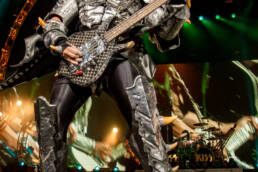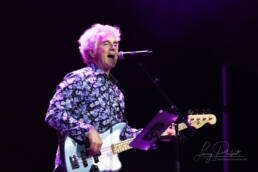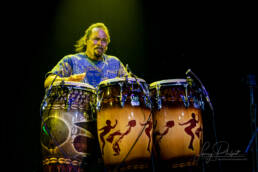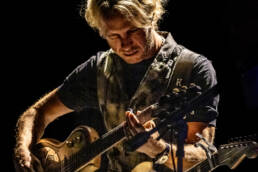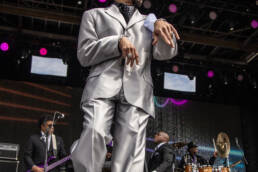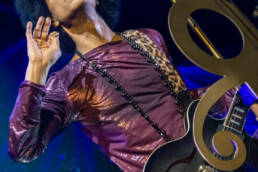Steve Howe: The Strings That Wove a Dreamscape
The Spark That Struck the Frets
Picture a young Steve Howe in 1950s North London, a bespectacled boy hunched over a cheap guitar, plucking away in a cramped bedroom while the gray sprawl of Holloway hummed outside. Music wasn’t a pastime—it was an obsession. At 12, he heard Chet Atkins’ “Tramp” on a crackling radio, those fingerpicked notes igniting something primal. “It was like the guitar spoke a language I had to learn,” he’d later tell Guitar Player. Classical records from his dad’s shelf—Bach, Vivaldi—mingled with rock ‘n’ roll’s pulse, and by 14, he was gigging in pubs. Music became his compass, guiding a shy kid through a labyrinth of sound.

From Pubs to Prog Peaks
Born Stephen James Howe on April 8, 1947, in Holloway, London, he was the second of four kids to Cyril, a chef, and Ada, a homemaker. A self-taught prodigy, he dodged formal lessons for instinct—by 17, he was in The Syndicats, cutting 1964’s “Maybellene.” Stints with The In Crowd and Tomorrow (1967’s psychedelic “My White Bicycle”) honed his chops, but Yes in 1970 was his launchpad. Replacing Peter Banks, Steve’s fluid runs and odd tunings lifted The Yes Album (1971) and Fragile (1971) into the stratosphere—Close to the Edge (1972) sealed their prog crown.
He left Yes in 1981 for Asia, scoring 1982’s “Heat of the Moment,” then toggled solo work (The Steve Howe Album, 1979) and GTR (1986’s “When the Heart Rules the Mind”). Back with Yes by 1990, he’s juggled reunions—Union (1991), Fly from Here (2011)—and side gigs like Anderson Bruford Wakeman Howe (1989). Married to Jan since 1968, he’s got four kids; son Dylan’s drummed with him. At 77 in 2025, he’s in Buckinghamshire, still touring with Yes.
Career Constellation and Connections
Yes’ classic lineup: Howe (guitar), Jon Anderson (vocals), Chris Squire (bass), Rick Wakeman (keys), Bill Bruford (drums)—Alan White later took drums (1972-2022). Asia’s crew—John Wetton (bass), Geoff Downes (keys), Carl Palmer (drums)—hit big. Ties? Steve’s jammed with Queen (1993’s “Innuendo” sessions), mentored Billy Currie, and bonded with Martin Taylor. No tabloid flames—Jan’s his anchor.
Onscreen, “Roundabout” rocked Jojo Rabbit (2019); Steve guested on Top Gear (2007). Awards? Five Grammys with Yes (Best Rock Instrumental, Cinema, 1983, among them), a 2017 Prog God nod, and Yes’ 2017 Rock & Roll Hall of Fame induction.
Biggest hits:
- “Roundabout” (Fragile, 1971) – Steve, Anderson, and Wakeman’s #13 US prog epic, pure Yes.
- “Owner of a Lonely Heart” (90125, 1983) – Trevor Rabin’s #1 US hit, Steve co-crafted its sheen.
- “Heat of the Moment” (Asia, 1982) – Steve and Wetton’s #4 US Asia anthem.
- “Close to the Edge” (Close to the Edge, 1972) – Steve and Anderson’s sprawling classic, uncharted but iconic.
Tempests in the Tuning
Steve’s controversies are subtle storms. His 1981 Yes exit—burnout, clashing with Trevor Horn—irked fans; he told Classic Rock, “I needed air.” Asia’s 1985 implosion—Wetton’s ego, Steve’s fatigue—sparked whispers of diva-ism, but he shrugged it off. A 2010 X spat with Wakeman over Yes’ direction (“Too nostalgic!”) flared briefly. Offstage, he’s clean—no drugs, no scandals—just a 1990s tax squabble hushed up. His battles are sonic, not salacious—purists still grumble his GTR pop turn betrayed prog.
The Endless Riff
From a London pub rat to prog’s pantheon, Steve Howe’s woven complexity into rock’s fabric. At 77 in 2025, he’s touring Mirror Moves, his fingers still dancing across frets. He didn’t chase fame—he sculpted it, proving a quiet kid could play loud forever.
